- Home
- Неизвестный
The Bolivian Diary Page 2
The Bolivian Diary Read online
Page 2
January 3–14, 1966 The Tricontinental Conference of Solidarity of the Peoples of Asia, Africa, and Latin America is held in Havana.
March 1966 The first Cuban combatants arrive in Bolivia to begin advance preparations for a guerrilla movement. Tania has already been working there since 1964.
July 1966 Che Guevara meets with Cuban volunteers selected for the mission to Bolivia at a training camp in Cuba’s Pinar del Río province.
November 4, 1966 Che Guevara arrives in La Paz, Bolivia, in disguise, using the assumed name of Ramón Benítez.
November 7, 1966 Che Guevara and several others arrive at the farm on the Ñacahuazú River where the guerrilla detachment will be based. Che makes his first entry in his diary of the Bolivia campaign.
December 31, 1966 Che Guevara meets with the secretary of the Bolivian Communist Party, Mario Monje. There is disagreement over perspectives for the planned guerrilla movement.
March 23, 1967 The first guerrilla military action takes place in a successful ambush of Bolivian Army troops.
March 25, 1967 The formation of the Bolivian National Liberation Army (ELN) is publicly announced.
April 16, 1967 Publication of Che Guevara’s “Message to the Tricontinental,” which calls for the creation of “two, three, many Vietnams.”
April 17, 1967 The guerrilla detachment led by Joaquín (Vilo Acuña) is separated from the rest of the unit. The separation is supposed to last only a few days but the two groups are never able to reunite.
April 20, 1967 French intellectual Regís Debray and Ciro Bustos are arrested after having spent several weeks with the guerrilla unit in Bolivia. They are subsequently tried and sentenced to 30 years’ imprisonment.
May 1967 US Special Forces arrive in Bolivia to train counterinsurgency troops of the Bolivian Army.
June 23-24, 1967 The Bolivian Army massacres miners and their families at the Siglo XX mines. This becomes known as the San Juan massacre.
June 26, 1967 The guerrillas ambush army troops at Florida.
July 1, 1967 President Barrientos publicly announces Che Guevara’s presence in Bolivia.
July 6, 1967 The guerrillas occupy the town of Sumaipata.
July 26, 1967 Che addresses the guerrilla troops on the significance of the July 26, 1953, attack on the Moncada garrison.
July 31–August 10, 1967 The Organization of Latin American Solidarity (OLAS) conference is held in Havana. The conference supports guerrilla movements throughout Latin America. Che Guevara is elected honorary chair.
August 4, 1967 A deserter leads the Bolivian Army to the guerrilla’s main supply cache. Documents discovered there lead to the arrest of key urban contacts.
August 31, 1967 Joaquín’s detachment, which includes Tania, is ambushed and annihilated while crossing the Río Grande at Puerto Mauricio (Vado del Yeso).
September 14, 1967 Loyola Guzmán is arrested along with hundreds of others suspected of collaborating with the guerrilla movement.
September 22, 1967 The guerrillas occupy the town of Alto Seco.
September 26, 1967 The guerrilla unit falls into a Bolivian Army ambush at Quebrada del Batán, near La Higuera.
October 8, 1967 The remaining 17 guerrillas are trapped by army troops and conduct a desperate battle in the Quebrada del Yuro (El Yuro ravine). Che Guevara is seriously wounded and captured.
October 9, 1967 Che Guevara and two other captured guerrillas (Willy and Chino) are murdered by Bolivian soldiers following instructions from the Bolivian government and Washington. The remains of Che Guevara and the other guerrillas are secretly buried in Bolivia.
October 14, 1967 Survivors of the battle of Quebrada del Yuro are ambushed at the fork of the Mizque and Río Grande rivers.
October 15, 1967 In a television appearance Fidel Castro confirms news of Che Guevara’s death and declares three days of official mourning in Cuba. October 8 is designated the Day of the Heroic Guerrilla.
October 18, 1967 Fidel Castro delivers a memorial speech for Che Guevara in Havana’s Revolution Plaza before an audience of almost one million people.
February 22, 1968 Three Cuban survivors (Pombo, Urbano, and Benigno) cross the Bolivian border into Chile, after traveling across the Andes on foot. They succeed in making it back to Cuba. Two Bolivians (Inti and Darío) stay in Bolivia and later reorganize the ELN.
Mid-March 1968 Microfilm of the pages of Che’s Bolivian diaries arrives in Cuba.
July 1968 Che Guevara’s Bolivian Diary is published in Cuba and distributed free of charge to the Cuban people. It is simultaneously published in many countries to counter the CIA campaign to discredit the revolutionary movement in Latin America. With an introduction by Fidel Castro, it becomes an instant international bestseller.
July 1997 Che Guevara’s remains are finally located and returned to Cuba and buried along with the bodies of other guerrilla fighters found in Bolivia in a new memorial built in Santa Clara.
MAP OF BOLIVIA
SHOWING THE ZONE OF GUERRILLA OPERATIONS
ZONE OF GUERRILLA OPERATIONS
PREFACE
Camilo Guevara
Santa Cruz, Bolivia
1967
Almost a year of intense warfare has transpired. Recently, due to a betrayal, Joaquin’s group has fallen victim to an ambush in Vado del Yeso [Puerto Mauricio], and the encirclement of Che’s troops tightens. They have decided to abandon the area in search of more suitable terrain, where they can more effectively develop the conditions to consolidate the guerrilla movement. It is the afternoon and soldiers are advancing; combat is imminent.
On the last page of the red diary, confiscated by the Bolivian military, is an entry dated October 7, 1967. It is barely possible to decipher the author’s difficult handwriting: “The 11-month anniversary of our establishment as a guerrilla force passed in a bucolic mood, with no complications ...” These words in no way read as an epilogue to the heroic saga described in the diary, as there is not the slightest tone of discouragement, pessimism, or defeatism; on the contrary, these words appear to be a beginning, a prologue.
***
October 8—A wounded prisoner is transferred to the tumble-down school at La Higuera, absorbed in his pain and almost unable to breathe. He can barely walk upright; he fights with the weight, accumulating over the past few months, which conspires against his shoulders. He has been weakened by calamity and illness, by the death of friends and compañeros, by the betrayal of some, by the unenviable responsibility he bears for the lives of those near and far away, by a yearning for his loved ones. The burden is equal to the sum of terrestrial forces. Yet his body is still upright and armed with conviction, preparing for another battle.
Later, bound against the adobe wall, waiting for the inevitable verdict, he silently observes the head guards. Some are more arrogant than others, assassins in the premature song of victory, who occasionally try to harass the man they consider their victim. But the respect he inspires and the power of his stony gaze deeply affects and confuses them, blocking any inclination toward cowardice. Nevertheless, they are poised to avenge this guerrilla’s audacity in facing, with only 50 armed men, an entire army trained and financed by the empire and its Praetorian rangers.
His captors are faced with a tremendous dilemma. On the one hand, they hold one of the most legendary revolutionaries ever known, who can be paraded as proof of foreign aggression or an international communist plot. On the other hand, they know their captive is tenacious, a righteous man commanding solid arguments, who could transform any court into a public platform, so that any trial might become a dangerous political game with an uncertain outcome.
The National Liberation Army of Bolivia (ELN) has dramatically announced its presence and carried out multiple actions, almost always successfully, with no effective response from the government. Neither national nor international public opinion is detached from these events: everywhere, a sympathetic atmosphere is developing, despite the fact that the expected mass incorporation
of Bolivian peasants into the guerrilla ranks has yet not occurred. News reports emerging in recent days have provided the guerrilla fighters with enormous publicity. This is a very delicate moment and those interested in maintaining the status quo know it will be decisive.
A mood of vengeance abounds among the colorless, ignominious drones, who defend their “causes” with such unsubtle methods. If it is paradoxical to make a jail out of a school, it is simply futile (as well as inept and criminal), to seek to kill ideas with a rifle.
He is concerned about the fate of those who made it out of the battle alive, he wonders ... In the brief moments of silence, struggling against the rope to alleviate the numbness in his arms and legs, he retreats into his memories, to the company of his wife, surrounded by their children, his relatives and closest friends, his Argentina, his Cuba, the world, and Fidel.
Undoubtedly, some will praise themselves or will be congratulated for having brought this “glory” to the Bolivian Army. The capture of Commander Guevara has been pure oxygen for the lifeblood and prestige of the regime—at least this is what they think. Should they have asked themselves: How can a future spirit be imprisoned in the past? How can an example be incarcerated?
With his leg wounded, his rifle broken, and with no other weapon, they managed to capture this man, but only because he was a brother to his compañeros, a real man, a true revolutionary to the core, a human being moved only by great feelings of love.
He could have broken through the encirclement of soldiers surrounding him. Who could doubt his tactical genius? But he preferred to remain with those who could not defend themselves, the sick and wounded compañeros. He could have left Santa Cruz some time before, but he decided to wait, to continue the search and not abandon Joaquin’s group. Precious time transpired, but he never dwelled on these lost days. He could have allowed Pelao and the Frenchman, who later demonized him, to attempt to reach the city through their own efforts, but he preferred to leave them where they were reasonably safe.
Such an intense, complete man does not fit within the narrow criteria of those who pass judgment on him. Certainly, there are those who fear him and criticize him—unwavering revolutionaries of after-dinner conversations, bureaucrats, ubiquitous cowards, opportunists, tyrants of the oligarchies and oligarchs of democracy. For different reasons they hide from him or try to hide him away behind the illusory mantel that utopias are unattainable. But others respect him—the majorities that in part or in full share his vision of the future. His grandeur is barely perceptible at the time of his capture, history will define it later.
Close by, during the evening hours, a small group of men have gathered in an area hemmed in by abrupt mountainous terrain. Some have fresh wounds, all are starving, thirsty, and exhausted beyond words, uncertainty etched on their faces. They desperately seek news on the whereabouts of their compañeros and their beloved commander via a portable radio. Taunted by a powerful intuition of disaster, they nervously move the dial in search of the more reliable radio stations, although naturally they regard any broadcast with tremendous reservation. They know from experience that radio news can be subtly manipulated, capitalizing on the guerrilla fighter’s perennial need for information by laying mortal traps or by leading them in mistaken directions. This time, however, they are willing to resign themselves to the most elementary indication, and will act without measuring the consequences.
They will do whatever is necessary, in accordance with their ideas and their feelings of solidarity toward their brothers-in-arms. The desire to help them and to save the movement is stronger than any rational hesitation about a rescue mission. What is at stake is the ELN itself, in this initial formative stage, for which the fighters have already so often wagered their lives.
The possible evacuation of the guerrilla forces had been planned, including where they would meet in the event of a setback or forced retreat: if not here, there, and if not, farther over. They have fully complied with the previously agreed on plans. There is no reason to feel shame, but after so many months of fighting in Bolivian territory, some feel vulnerable, with an unjustified yet understandable sense of guilt. For others, it has been an entire lifetime of sharing the ups and downs of the struggle, the few provisions, and the many hopes, dreams, and fears—of surviving others, of risking one’s life, of losing beloved friends and relatives. They feel the anguish and regret of a latent despair, silently wishing for the same fate as their compañeros, whatever that might be, and although they force optimism to remain uppermost in their minds, their hearts experience the shocking acknowledgment of what they had until now considered impossible.
The dramatic news is confirmed: Che has died in combat. His belongings are described in vivid detail and other information is given that only those close to the scene could have known. The reality engulfs them, overpowering their thoughts and the fiber of their bodies. What should they do? What is to be done? What are they doing there? Time presses upon them. The army has not abandoned its search for the guerrillas; in minutes or seconds, the soldiers might fall upon them. They have to act immediately. How many memories flood their minds, how many voices are still fresh in their ears? A phrase comes to mind, one of those that reduces great truths to a few words: “In a revolution, if it’s a true revolution, you win or you die.”
Perhaps there was another option, somewhere between an uncertain farewell and faith in the final goal, the “Hasta la victoria siempre” [Ever onward to victory] we have heard so often. What does it matter: If the struggle continues, independently of the great loss, Che and his compañeros will have won. If the struggle is abandoned, irrespective of the present or the future, his battle cry, specifically directed to the poor and other receptive ears, will fall as lifeless as his body.
Their decision will affect the course of history. Although it is the people who always have the final word, it is a favorable, unequivocal sign when the rank and file of the revolutionary movement adheres to the thought and actions of their leaders. The remaining members of the ELN make a pact, now famous, to fight to the end, to continue the struggle until the guerrilla movement’s main objectives become reality. They are confident that a movement strongly rooted in Latin Americanism and Che Guevara’s historical thought, will lead to new epic moments in the peoples’ struggles for their redemption.
October 9—In that poor, little schoolhouse in La Higuera, a small space confines one of the most consequential human beings ever known. A great man patiently waits for death. The order to murder him comes from Washington; the underlings duly obey and with one bullet after another steal the vigor from the guerrilla fighter’s body, a sad and terrible error.
Against their will, Che is transformed into a hardened symbol of resistance, a symbol of the fight for what is just, of passion, of the necessity of being fully human, multiplied infinitely in the ideals and weapons of those who struggle. This is what the front men and their omnipotent handlers fear.
They have never understood the absurdity of trying to destroy the essence of an audacious, creative spirit, an indefatigable and studious worker, a formidable leader who never ceased delivering blows against bureaucracy and aristocracy. They have never understood that it was, and always will be, impossible to undermine Che’s conviction (which he himself embodied) that an individual human being can ascend to greater heights, can change for the better, and can make the society in which he or she lives a nobler place.
Che never ceased believing that revolutionaries, even if they are being massacred sadistically, should invoke the use of force only when absolutely necessary, and, even then, should never accompany it with cruelty. This idea is directly proportional to the condition of being a revolutionary.
Finally, without a trial, without a thought, the new man Che Guevara represented is killed. But what is born is a yearning for the new human being who is neither an illusion nor a fantasy. The dream now emerges of a new human being who is constantly renewed, who sacrifices themselves for others, who grows beyond m
ediocrity, if only for an instant, to become different, better. A dream, dormant for many centuries, takes shape: an ethical, virtuous, selfless human being. This time, stripped of all myth and mysticism, this person must be fundamentally human.
Camilo Guevara March
Che Guevara Studies Center
July 2005
A NECESSARY
INTRODUCTION
Fidel Castro
It was Che’s custom during his days as a guerrilla [during the 1956–58 Cuban revolutionary war] to carefully record his daily observations in a personal diary. During long marches over rugged and difficult terrain, in the midst of damp woods, when the lines of men, always hunched over from the weight of their packs, ammunition, and weapons, would stop for a moment to rest, or when the column would receive orders to halt and set up camp at the end of an exhausting day’s march, you would see Che—as he was affectionately nicknamed by the Cubans from the beginning—take out a small notebook and, with the tiny and nearly illegible handwriting of a doctor, write his notes.
What he was able to save from these notes he later used in writing his magnificent historical narratives of the revolutionary war in Cuba—accounts full of revolutionary, educational, and human content.1
This time, thanks to his invariable habit of noting the main events of each day, we have at our disposal rigorously exact, priceless, and detailed information on the heroic final months of his life in Bolivia.
These notes, not really written for publication, served as a tool in the constant evaluation of events, situations, and people, and at the same time served as an outlet for the expression of his keenly observant and analytical spirit, often laced with a fine sense of humor. They are soberly written and form a coherent whole from beginning to end.

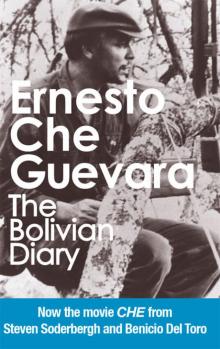 The Bolivian Diary
The Bolivian Diary Caffeine Blues_ Wake Up to the Hidden Dangers of America's #1 Drug ( PDFDrive )
Caffeine Blues_ Wake Up to the Hidden Dangers of America's #1 Drug ( PDFDrive ) The Empty House
The Empty House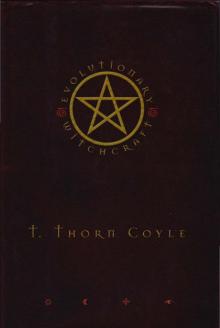 T Thorn Coyle Evolutionary Witchcraft (pdf)
T Thorn Coyle Evolutionary Witchcraft (pdf)![K J Emrick & Kathryn De Winter - [Moonlight Bay Psychic Mystery 01-06] - A Friend in; on the Rocks; Feature Presentation; Manor of; by Chocolate Cake; A-Maze-Ing Death (retail) (epub) Read online](http://freenovelread.comhttps://picture.efrem.net/img/nienyi/k_j_emrick_and_kathryn_de_winter_-_moonlight_bay_psychic_of_by_chocolate_cake_a-maze-ing_death_retail_epub_preview.jpg) K J Emrick & Kathryn De Winter - [Moonlight Bay Psychic Mystery 01-06] - A Friend in; on the Rocks; Feature Presentation; Manor of; by Chocolate Cake; A-Maze-Ing Death (retail) (epub)
K J Emrick & Kathryn De Winter - [Moonlight Bay Psychic Mystery 01-06] - A Friend in; on the Rocks; Feature Presentation; Manor of; by Chocolate Cake; A-Maze-Ing Death (retail) (epub) Next Day of the Condor
Next Day of the Condor Onyx
Onyx The Woodcock Game: An Italian Mystery Novel
The Woodcock Game: An Italian Mystery Novel Granta 122: Betrayal (Granta: The Magazine of New Writing)
Granta 122: Betrayal (Granta: The Magazine of New Writing) One More Dream
One More Dream Cosa Nostra by Emma Nichols) 16656409 (z-lib.org) (1)-compressed
Cosa Nostra by Emma Nichols) 16656409 (z-lib.org) (1)-compressed Cowboy by J. M. Snyder
Cowboy by J. M. Snyder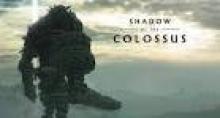 Colossus
Colossus Star Trek - DS9 011 - Devil In The Sky
Star Trek - DS9 011 - Devil In The Sky Fright Mare-Women Write Horror
Fright Mare-Women Write Horror The Future Is Japanese
The Future Is Japanese In the Witching Hour
In the Witching Hour Mammoth Books presents Wang's Carpets
Mammoth Books presents Wang's Carpets The Cradle King: The Life of James VI and I, the First Monarch of a United Great Britain
The Cradle King: The Life of James VI and I, the First Monarch of a United Great Britain Stalking Moon
Stalking Moon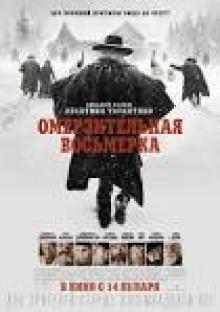 Hostage To The Devil
Hostage To The Devil![Harris, Daisy - Mere Passion [Ocean Shifters 2] (Siren Publishing Classic) Read online](http://i1.bookreadfree.com/i/03/23/harris_daisy_-_mere_passion_ocean_shifters_2_siren_publishing_classic_preview.jpg) Harris, Daisy - Mere Passion [Ocean Shifters 2] (Siren Publishing Classic)
Harris, Daisy - Mere Passion [Ocean Shifters 2] (Siren Publishing Classic) Day, Sunny - Hot in Space (Siren Publishing Ménage and More)
Day, Sunny - Hot in Space (Siren Publishing Ménage and More) Five Books Of The Lives, Heroic Deeds And Sayings Of Gargantua And His Son Pantagruel
Five Books Of The Lives, Heroic Deeds And Sayings Of Gargantua And His Son Pantagruel I Never Thought I'd See You Again: A Novelists Inc. Anthology
I Never Thought I'd See You Again: A Novelists Inc. Anthology Billion dollar baby bargain.txt
Billion dollar baby bargain.txt![Chenery, Marisa - Turquoise Eye of Horus [Egyptian Shifters 1] (Siren Publishing Classic) Read online](http://i1.bookreadfree.com/i1/03/26/chenery_marisa_-_turquoise_eye_of_horus_egyptian_shifters_1_siren_publishing_classic_preview.jpg) Chenery, Marisa - Turquoise Eye of Horus [Egyptian Shifters 1] (Siren Publishing Classic)
Chenery, Marisa - Turquoise Eye of Horus [Egyptian Shifters 1] (Siren Publishing Classic) Cat Magic
Cat Magic Star Trek - DS9 - Warped
Star Trek - DS9 - Warped Catherine Coulter - FBI 1 The Cove
Catherine Coulter - FBI 1 The Cove Miranda Lee -The Blackmailed Bridegroom
Miranda Lee -The Blackmailed Bridegroom The Seashell Anthology of Great Poetry
The Seashell Anthology of Great Poetry Dragon Moon
Dragon Moon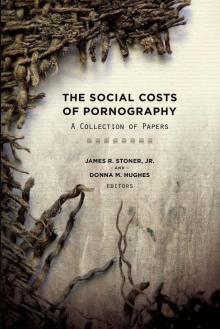 The Social Costs of Pornography: A Collection of Papers
The Social Costs of Pornography: A Collection of Papers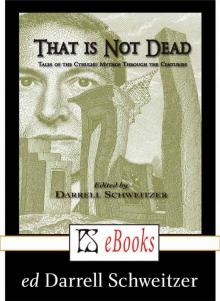 That Is Not Dead
That Is Not Dead Best New Horror: Volume 25 (Mammoth Book of Best New Horror)
Best New Horror: Volume 25 (Mammoth Book of Best New Horror) This Christmas by J. M. Snyder
This Christmas by J. M. Snyder Faerie Cake Dead
Faerie Cake Dead CS-Dante's Twins
CS-Dante's Twins EFD1: Starship Goodwords (EFD Anthology Series from Carrick Publishing)
EFD1: Starship Goodwords (EFD Anthology Series from Carrick Publishing) Echo Burning by Lee Child
Echo Burning by Lee Child The Spinetinglers Anthology 2010
The Spinetinglers Anthology 2010 Wild Hearts
Wild Hearts Violet Winspear - Sinner ...
Violet Winspear - Sinner ... Broken Angels
Broken Angels FearNoEvil
FearNoEvil![Santiago, Lara - Range War Bride [Tasty Treats 11] (Siren Publishing PolyAmour) Read online](http://i1.bookreadfree.com/i1/03/30/santiago_lara_-_range_war_bride_tasty_treats_11_siren_publishing_polyamour_preview.jpg) Santiago, Lara - Range War Bride [Tasty Treats 11] (Siren Publishing PolyAmour)
Santiago, Lara - Range War Bride [Tasty Treats 11] (Siren Publishing PolyAmour) 8 Great Hebrew Short Novels
8 Great Hebrew Short Novels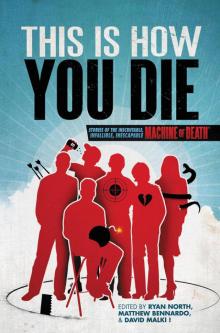 This Is How You Die: Stories of the Inscrutable, Infallible, Inescapable Machine of Death
This Is How You Die: Stories of the Inscrutable, Infallible, Inescapable Machine of Death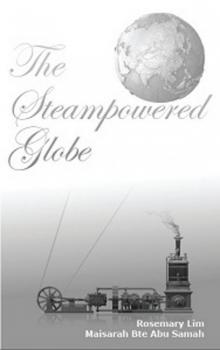 The Steampowered Globe
The Steampowered Globe While We Wait by J. M. Snyder
While We Wait by J. M. Snyder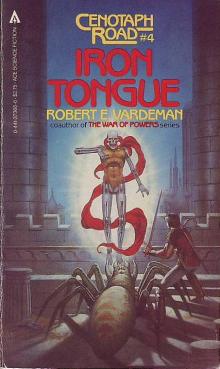 Iron Tongue cr-4
Iron Tongue cr-4![Stieg Larsson [Millennium 02] The Girl Who Played with Fire v5.0 (LIT) Read online](http://i1.bookreadfree.com/i1/03/31/stieg_larsson_millennium_02_the_girl_who_played_with_fire_v5_0_lit_preview.jpg) Stieg Larsson [Millennium 02] The Girl Who Played with Fire v5.0 (LIT)
Stieg Larsson [Millennium 02] The Girl Who Played with Fire v5.0 (LIT)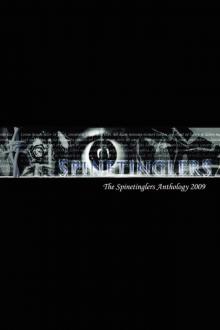 The Spinetinglers Anthology 2009
The Spinetinglers Anthology 2009 Bowles, Jan - Branded by the Texas Rancher (Siren Publishing Classic)
Bowles, Jan - Branded by the Texas Rancher (Siren Publishing Classic) Brown, Berengaria - Vivienne's Vacation (Siren Publishing Ménage and More)
Brown, Berengaria - Vivienne's Vacation (Siren Publishing Ménage and More) Inheritors
Inheritors Arthur Conan Doyle: A Life in Letters
Arthur Conan Doyle: A Life in Letters Cunningham, Pat - Coyote Moon (BookStrand Publishing Romance)
Cunningham, Pat - Coyote Moon (BookStrand Publishing Romance) Static Line
Static Line Ghost Mysteries & Sassy Witches (Cozy Mystery Multi-Novel Anthology)
Ghost Mysteries & Sassy Witches (Cozy Mystery Multi-Novel Anthology) Elizabeth Neff Walker - Puppy Love
Elizabeth Neff Walker - Puppy Love Ghosts in the Machine
Ghosts in the Machine Theater of the Crime (Alan Stewart and Vera Deward Murder Mysteries Book 6)
Theater of the Crime (Alan Stewart and Vera Deward Murder Mysteries Book 6) Red Satin Lips, Book One (The Surrender Series)
Red Satin Lips, Book One (The Surrender Series) Catherine Coulter - FBI 4 The Edge
Catherine Coulter - FBI 4 The Edge StateoftheUnion
StateoftheUnion Fantastic Women: 18 Tales of the Surreal and the Sublime from Tin House
Fantastic Women: 18 Tales of the Surreal and the Sublime from Tin House Sara Wood-Expectant Mistress original
Sara Wood-Expectant Mistress original Nine-to-Five Fantasies: Tales of Sex on the Job
Nine-to-Five Fantasies: Tales of Sex on the Job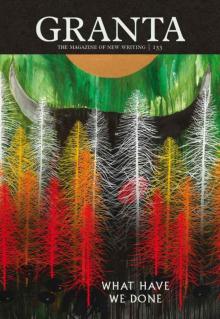 Granta 133
Granta 133 Dream Quest
Dream Quest The Warlock in Spite of Himself wisoh-2
The Warlock in Spite of Himself wisoh-2 Glenn, Stormy - Mating Heat (Siren Publishing Ménage Amour)
Glenn, Stormy - Mating Heat (Siren Publishing Ménage Amour) Davis, Lexie - Toys from Santa (Siren Publishing Classic)
Davis, Lexie - Toys from Santa (Siren Publishing Classic) Once Dead, Twice Shy
Once Dead, Twice Shy McSweeney's Enchanted Chamber of Astonishing Stories
McSweeney's Enchanted Chamber of Astonishing Stories Zombies: Shambling Through the Ages
Zombies: Shambling Through the Ages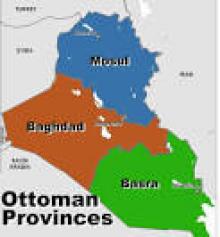 Baghdad Without a Map
Baghdad Without a Map Banshee Cries (the walker papers)
Banshee Cries (the walker papers)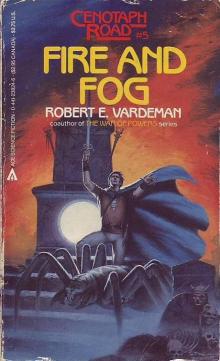 Fire and Fog cr-5
Fire and Fog cr-5 The Twelve Hot Days of Christmas
The Twelve Hot Days of Christmas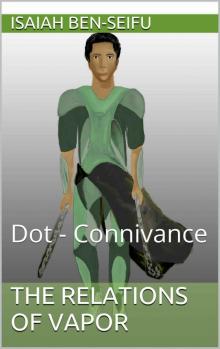 The Relations of Vapor: Dot - Connivance
The Relations of Vapor: Dot - Connivance![Harris, Daisy - Mere Temptation [Ocean Shifters 1] (Siren Publishing Classic) Read online](http://i1.bookreadfree.com/i2/04/11/harris_daisy_-_mere_temptation_ocean_shifters_1_siren_publishing_classic_preview.jpg) Harris, Daisy - Mere Temptation [Ocean Shifters 1] (Siren Publishing Classic)
Harris, Daisy - Mere Temptation [Ocean Shifters 1] (Siren Publishing Classic)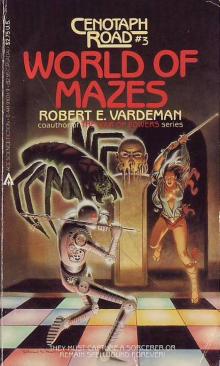 World of Mazes cr-3
World of Mazes cr-3 Mistaken Identity (A Jules Poiret Mystery Book 26)
Mistaken Identity (A Jules Poiret Mystery Book 26) Star Trek - DS9 - Fall of Terok Nor
Star Trek - DS9 - Fall of Terok Nor Not Like I'm Jealous or Anything: The Jealousy Book (Ruby Oliver)
Not Like I'm Jealous or Anything: The Jealousy Book (Ruby Oliver) Skaterboy by J. M. Snyder
Skaterboy by J. M. Snyder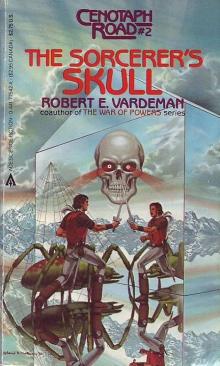 The Sorcerer_s Skull cr-2
The Sorcerer_s Skull cr-2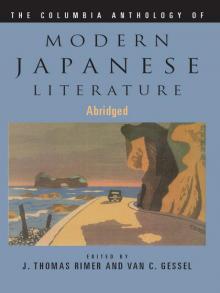 The Columbia Anthology of Modern Japanese Literature (Modern Asian Literature Series)
The Columbia Anthology of Modern Japanese Literature (Modern Asian Literature Series) New Erotica 5
New Erotica 5 Catherine Coulter - FBI 3 The Target
Catherine Coulter - FBI 3 The Target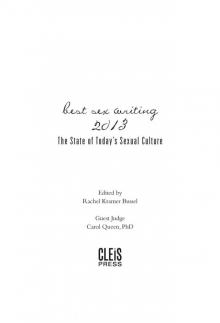 Best Sex Writing 2013: The State of Today's Sexual Culture
Best Sex Writing 2013: The State of Today's Sexual Culture Factoring Humanity
Factoring Humanity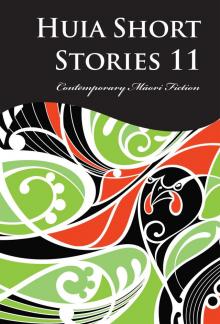 Huia Short Stories 11
Huia Short Stories 11 Call of the Wilds
Call of the Wilds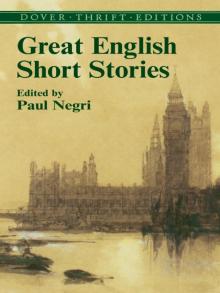 Great English Short Stories (Dover Thrift Editions)
Great English Short Stories (Dover Thrift Editions)![Ramagos, Tonya - Logan's Lessons [Sunset Cowboys 2] (Siren Publishing Classic) Read online](http://i1.bookreadfree.com/i2/04/10/ramagos_tonya_-_logans_lessons_sunset_cowboys_2_siren_publishing_classic_preview.jpg) Ramagos, Tonya - Logan's Lessons [Sunset Cowboys 2] (Siren Publishing Classic)
Ramagos, Tonya - Logan's Lessons [Sunset Cowboys 2] (Siren Publishing Classic)![Morgan, Nicole - Sweet Redemption [Sweet Awakenings 1] (Siren Publishing Allure) Read online](http://i1.bookreadfree.com/i2/04/10/morgan_nicole_-_sweet_redemption_sweet_awakenings_1_siren_publishing_allure_preview.jpg) Morgan, Nicole - Sweet Redemption [Sweet Awakenings 1] (Siren Publishing Allure)
Morgan, Nicole - Sweet Redemption [Sweet Awakenings 1] (Siren Publishing Allure) Warbirds of Mars: Stories of the Fight!
Warbirds of Mars: Stories of the Fight! Original Version of Edited Godwin Stories(lit)
Original Version of Edited Godwin Stories(lit) Where The Hell is Boulevard?
Where The Hell is Boulevard?![Chemical [se]X Read online](http://i1.bookreadfree.com/i2/04/13/chemical_sex_preview.jpg) Chemical [se]X
Chemical [se]X Allison Brennan - See No Evil
Allison Brennan - See No Evil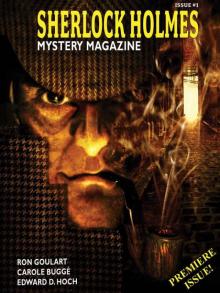 Sherlock Holmes Mystery Magazine #1
Sherlock Holmes Mystery Magazine #1